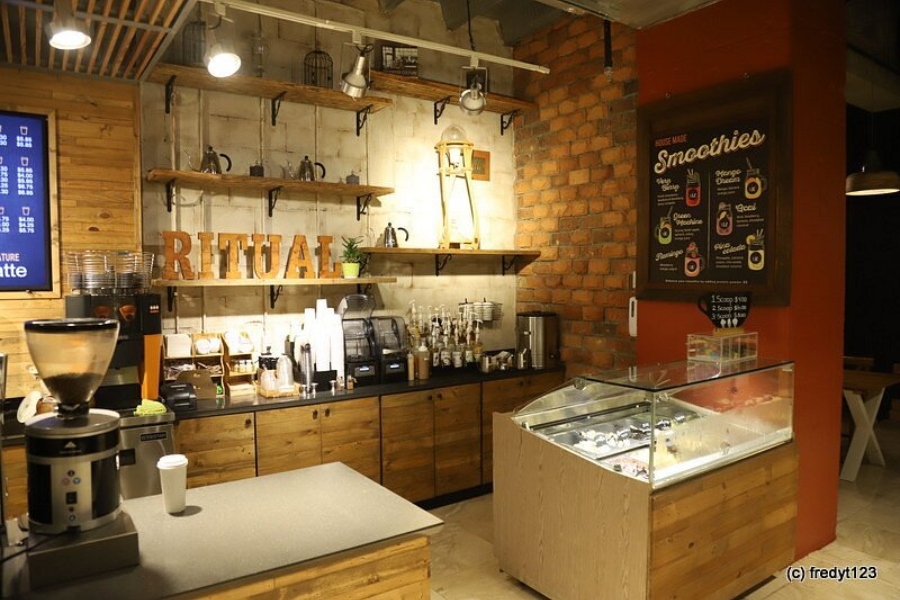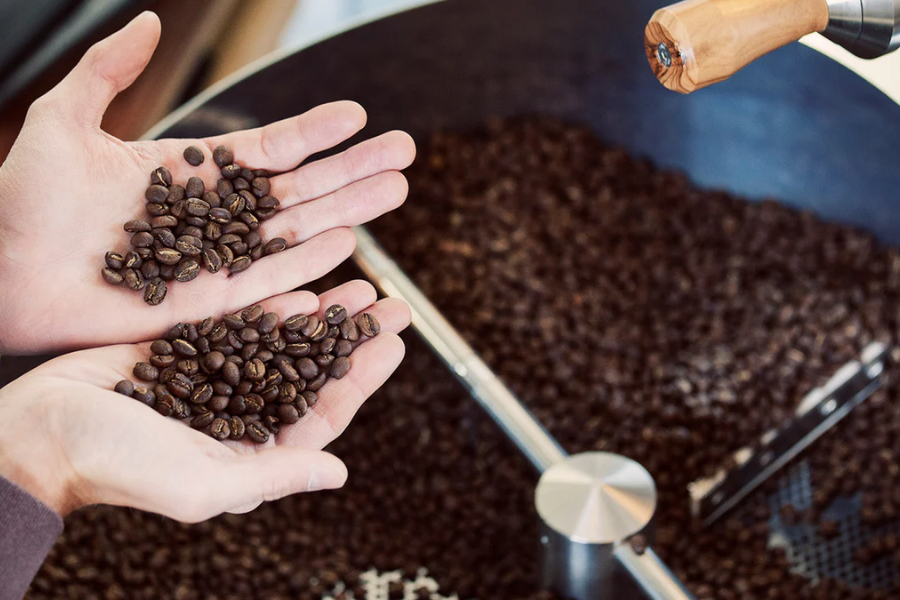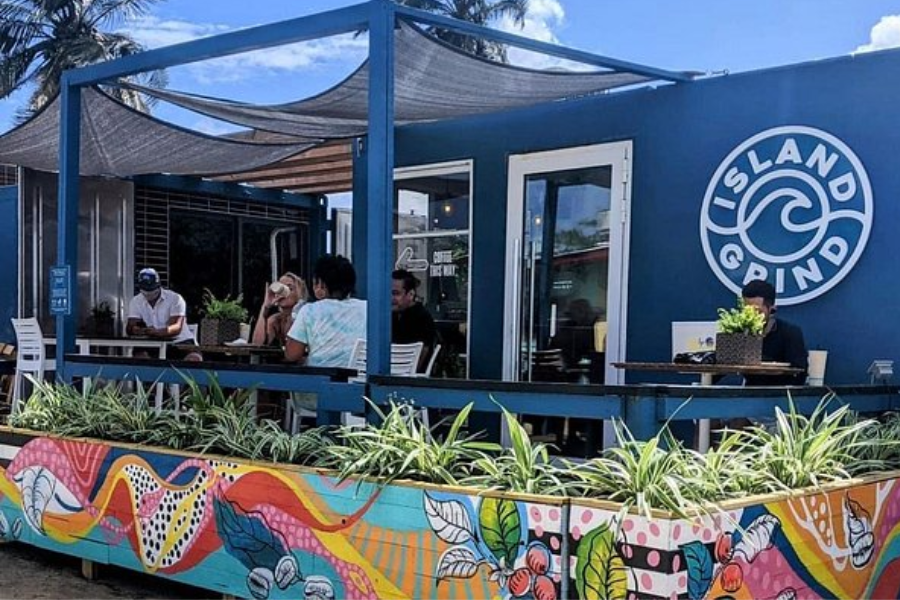When you think of Aruba, stunning beaches and vibrant cultural celebrations likely come to mind. However, this beautiful Caribbean island is also becoming a hidden gem for coffee enthusiasts, as highlighted in the latest Aruba coffee bean news. In recent years, Aruba’s coffee scene has blossomed into something truly special, characterized by a passionate artisanal movement that prioritizes quality and sustainability. Local coffee roasters are experimenting with unique beans and flavors, transforming each cup into a delightful experience. They focus on transparency, sharing stories about where their beans come from, the farmers behind them, and the sustainable practices that help protect the island’s natural beauty. This dedication to crafting exceptional coffee not only enriches the flavor but also fosters a deeper appreciation for each sip.
The rise of charming local cafes is another exciting aspect of Aruba’s evolving coffee culture, as noted in recent Aruba coffee bean news. These inviting spaces offer more than just coffee; they create a sense of community, welcoming both residents and visitors to gather, relax, and savor the moment. Many cafes host events like live music, art displays, and poetry readings, enriching the island’s vibrant atmosphere. They often source ingredients locally, infusing their menus with fresh flavors that celebrate Aruba’s culinary heritage. As sustainability becomes increasingly important, many cafes are adopting eco-friendly practices, using biodegradable products and promoting responsible sourcing. With a bright future ahead, Aruba is not only carving out a unique identity in the world of coffee but also providing a warm and engaging experience for anyone eager to explore its rich coffee culture.
Aruba’s Awakening Coffee Culture

In recent years, there has been a notable surge in the demand for locally grown coffee beans in Aruba. This increase is part of a broader global trend where consumers are increasingly seeking out locally sourced, sustainable, and artisanal products. While Aruba may not be the first place that comes to mind when you think of coffee production, the island is steadily carving out its niche in this competitive industry.
Coffee is evolving beyond being just a beverage; it’s becoming a way of life in Aruba. Cafes and coffee shops across the island are embracing this culture by offering more artisanal brews and showcasing exceptional beans, some of which are even cultivated right on the island. This shift towards local production, combined with a growing community of coffee enthusiasts, has ignited exciting discussions in the Aruba coffee bean news about the island’s potential in the coffee market. As more people explore the flavors and stories behind Aruba’s coffee, the island is positioning itself as an emerging player in the world of specialty coffee.
The Coffee Heritage Of The Caribbean
To truly appreciate Aruba’s burgeoning coffee scene, it’s essential to first explore the broader history of coffee in the Caribbean. This region has a rich heritage when it comes to coffee cultivation, with islands like Jamaica and Cuba gaining international recognition for their exceptional beans. Coffee plants were introduced to the Caribbean in the 18th century by European colonizers, and over time, the area became known for producing high-quality coffee that delighted palates around the world.
However, Aruba’s coffee journey tells a different story. Unlike neighboring islands such as the Dominican Republic, which boast large-scale coffee plantations, Aruba’s arid climate and relatively small land area made the establishment of extensive coffee farms impractical. Instead, the island has shifted its focus toward small-scale, specialty coffee production. This approach not only highlights the uniqueness of Aruba’s coffee but also aligns with sustainable practices that respect the environment. As a result, Aruba is carving out its own identity in the coffee world, emphasizing quality over quantity and fostering a growing community of coffee enthusiasts eager to explore local flavors.
Unique Coffee Varieties In Aruba

| Aspect | Details |
|---|---|
| Geographical Limitations | Aruba lacks extensive coffee plantations due to its climate and size, making large-scale farming impractical. |
| Partnerships | The island has established partnerships with coffee-producing countries like Colombia and Costa Rica to import high-quality beans. |
| Flavor Profiles | Imported beans are known for their rich flavors, supporting the development of Aruba’s coffee culture. |
| Café Specialties | Cafés such as Juan Valdez Café focus on Colombian coffee, renowned for its smooth and rich taste. |
| Menu Expansion | The rise of specialty coffees and single-origin brews allows local cafés to diversify their offerings with unique flavor profiles. |
| Taste Experience | Coffee lovers can enjoy a variety of tastes, from fruity and floral notes to deep, chocolatey undertones. |
| Innovation in Brewing | The popularity of specialty coffee encourages cafés to experiment with different blends and brewing techniques, enhancing quality and customer experience. |
Aruba’s coffee scene, though not built on large plantations, is flourishing through strategic partnerships with established coffee-producing countries like Colombia and Costa Rica. These collaborations enable the island to import high-quality beans known for their rich and diverse flavors, which serve as the backbone of Aruba’s evolving coffee culture. Cafés such as Juan Valdez Café are at the forefront of this movement, offering Colombian coffee that is celebrated for its smoothness and depth. As the demand for specialty and single-origin brews grows, local cafés are expanding their menus to include a wide range of unique flavor profiles. This trend not only elevates the quality of coffee served but also enhances the overall experience for customers, making each visit a delightful exploration of taste and craftsmanship.
Celebrating Coffee In Aruba: Events And Community Engagement
Aruba’s coffee culture thrives through a variety of vibrant events that celebrate this beloved beverage, drawing in both locals and tourists alike. Local festivals often showcase an array of activities, including coffee tastings, workshops, and barista competitions, providing opportunities for attendees to dive deep into the island’s rich coffee community. These gatherings not only highlight the talents of local artisans but also foster connections among coffee enthusiasts, creating a shared experience that strengthens the bond between producers and consumers.
Additionally, the rise of remote work has had a significant impact on the coffee culture on the island. Many cafés have adapted their spaces to accommodate digital nomads, offering reliable Wi-Fi and comfortable workstations. This shift has contributed to a thriving café culture where people gather to enjoy their favorite brews while working, studying, or socializing. The atmosphere in these coffee shops is lively and inviting, often serving as communal hubs where ideas are exchanged, collaborations are sparked, and friendships are formed over steaming cups of coffee.
These events and adaptations reflect a growing appreciation for coffee in Aruba, transforming it from a simple beverage into a cultural phenomenon. As the island continues to celebrate its coffee heritage, it cultivates a dynamic environment where everyone—whether a seasoned barista, a casual coffee drinker, or a remote worker—can find their place in the coffee-loving community.
The Economic Significance Of Coffee Production In Aruba
The coffee industry plays a crucial role in Aruba, not only due to its cultural importance but also because of its substantial economic impact. As the demand for high-quality coffee continues to grow, local businesses are increasingly seizing the opportunity to meet this trend. The rise of artisanal coffee shops across the island has led to job creation and stimulated the local economy, positioning coffee as an integral component of Aruba’s tourism strategy. These establishments offer unique experiences that draw both locals and tourists alike, contributing to the vibrant atmosphere of the island.
Furthermore, the burgeoning interest in coffee tourism holds significant promise for attracting visitors eager to explore Aruba’s coffee culture. Coffee enthusiasts can partake in engaging tours that highlight local cafés, the sourcing of beans, and the various brewing techniques employed by skilled baristas. These experiences not only allow tourists to appreciate the art of coffee-making but also enhance their overall travel experience. By immersing themselves in the local coffee scene, visitors can develop a deeper connection to Aruba’s culture and community.
As coffee production continues to evolve on the island, its economic impact will likely grow even more profound. By fostering a robust coffee culture, Aruba can not only elevate its tourism offerings but also create sustainable livelihoods for its residents. The synergy between coffee production and tourism presents a unique opportunity for the island to carve out a distinctive niche in the global coffee landscape while enriching the local economy.
Could Aruba Become A Coffee Exporter?

As the appreciation for locally produced coffee beans continues to grow, many are beginning to ponder whether Aruba could eventually establish itself as a coffee exporter. Although the island faces significant competition from major coffee-producing countries, there remains an exciting potential for small-scale, artisanal exports that could showcase Aruba’s unique offerings.
Currently, the majority of coffee produced on the island is consumed locally, but interest in sharing these distinctive beans with a broader audience is on the rise. Enterprising individuals are actively exploring avenues to export small batches of Aruba-grown coffee to niche markets abroad. These markets are often filled with customers who are willing to pay a premium for exceptional, sustainably grown coffee from unique locations. This opens the door for Aruba to carve out a special place in the global coffee scene.
By emphasizing quality over quantity, Aruba has the opportunity to position itself as a source of high-end, artisanal coffee that stands out in a crowded marketplace. As local producers focus on cultivating their beans with care and sustainability, they could attract discerning coffee lovers eager to experience the unique flavors that Aruba has to offer. With the right strategies and collaborations, Aruba’s coffee exports could indeed become the next big thing, enriching both the island’s economy and its cultural identity.
Obstacles Encountered By Aruba’s Coffee Industry
Despite the exciting growth of Aruba’s coffee industry, several challenges remain that need to be addressed. One significant hurdle is the island’s climate, which is not naturally conducive to coffee cultivation. As a result, farmers must adopt innovative farming techniques to successfully grow coffee beans. This often requires additional resources and expertise, making the process more complex.
Another challenge is the limited scale of coffee production on the island. Due to its small size, Aruba struggles to compete with larger coffee-producing countries when it comes to volume. This limitation impacts the island’s ability to establish a strong foothold in the global coffee market.
Furthermore, the focus on quality and sustainability in Aruba’s coffee production leads to higher costs. While this commitment ensures exceptional flavor and ethical practices, it also results in increased production expenses compared to conventionally produced coffee. Consequently, local farmers and producers may find it challenging to scale their operations or compete with cheaper imports, putting additional strain on the development of Aruba’s coffee scene.
Addressing these challenges will be crucial for the future growth and sustainability of Aruba’s coffee industry, ensuring that it can thrive and carve out a unique niche in the global market.
The Outlook For Coffee In Aruba

Looking ahead, the future of coffee in Aruba shines brightly with potential. As consumers increasingly seek out high-quality coffee, local cafés are likely to respond by expanding their offerings and exploring new brewing methods. This creative experimentation will not only enhance the variety of coffee experiences available but will also foster a culture of innovation within the industry. At the same time, a strong commitment to sustainability will remain at the forefront of Aruba’s coffee movement. By prioritizing environmentally friendly practices, the coffee sector can ensure that it supports both the local economy and the island’s natural resources for generations to come.
The rise of coffee tourism presents an exciting opportunity for Aruba to establish itself as a go-to destination for coffee lovers. With its breathtaking landscapes, vibrant culture, and the promise of exceptional coffee experiences, the island has everything needed to attract visitors who appreciate the finer aspects of coffee. Imagine sipping a freshly brewed cup while overlooking the stunning coastline or learning about the art of coffee-making from passionate local baristas. These experiences will not only delight the palate but also deepen visitors’ connections to Aruba’s rich cultural heritage.
As Aruba continues to nurture its coffee culture, the island is well-positioned to carve out a unique identity in the global coffee landscape. By combining quality, sustainability, and an unforgettable tourist experience, Aruba can create a thriving coffee community that captivates both locals and visitors alike. The journey ahead is filled with promise, and the collective dedication of farmers, roasters, and café owners will play a vital role in shaping the island’s coffee future.
Summary
Aruba’s coffee scene is experiencing a remarkable evolution, marked by a growing appreciation for locally produced beans, as highlighted in the latest Aruba coffee bean news. Although the island is not traditionally known for coffee production, its unique geography has led to a shift toward small-scale, artisanal coffee cultivation. With partnerships formed with coffee-producing countries like Colombia and Costa Rica, Aruba is importing high-quality beans, which form the foundation of its vibrant coffee culture. Local cafés, such as Juan Valdez Café, are beginning to highlight these beans, offering specialty and single-origin brews that cater to the diverse palates of coffee enthusiasts.
Despite the challenges posed by its arid climate and limited agricultural space, Aruba’s coffee industry is thriving, as reported in recent Aruba coffee bean news. The emphasis on quality and sustainability has given rise to a sense of pride among local farmers, roasters, and café owners, who collaborate to create a distinctively Aruban coffee experience. Additionally, the rise of coffee tourism presents exciting opportunities for the island, attracting visitors eager to explore its rich coffee offerings and engage in unique tasting experiences.
Local events celebrating coffee, such as tastings and barista competitions, further enrich the community, allowing both residents and tourists to immerse themselves in the island’s coffee culture, as discussed in the latest Aruba coffee bean news. The adaptation of cafés to accommodate remote workers has fostered a lively atmosphere where people can enjoy coffee while socializing or working, contributing to a dynamic café culture.
FAQs About Aruba Coffee Bean News
1. What is the current state of the coffee industry in Aruba?
Aruba’s coffee industry is rapidly evolving, with a growing demand for locally sourced, high-quality coffee. Although the island is not traditionally known for coffee production, small-scale, artisanal coffee cultivation is gaining traction, supported by partnerships with coffee-producing countries like Colombia and Costa Rica.
2. How does Aruba’s climate affect coffee production?
Due to its arid climate and limited agricultural space, Aruba faces challenges in large-scale coffee production. Instead, the focus has shifted to small-scale specialty coffee farming, which often incorporates sustainable practices.
3. Are there any local cafés that highlight Aruba’s coffee culture?
Yes, several local cafés, such as Juan Valdez Café, specialize in high-quality Colombian coffee and other unique blends. These cafés offer diverse menus that showcase a variety of flavor profiles, from fruity and floral to rich and chocolatey.
4. What events are held to celebrate coffee in Aruba?
Aruba hosts various events that celebrate coffee, including tastings, workshops, and barista competitions. These gatherings allow locals and tourists to engage with the coffee community and appreciate the skills of local artisans.
5. How has remote work influenced coffee culture in Aruba?
The rise of remote work has led many cafés in Aruba to adapt their spaces for digital nomads, offering reliable Wi-Fi and comfortable work areas. This trend has contributed to a vibrant café culture where people gather to work and socialize over coffee.
6. Is there potential for Aruba to export coffee?
There is growing interest in the possibility of Aruba becoming a coffee exporter. Although it may not compete with larger coffee-producing nations, there is potential for small-scale, artisanal exports to niche markets that value unique and sustainably grown coffee.
Stay tuned for more updates and alerts visit: The News!

